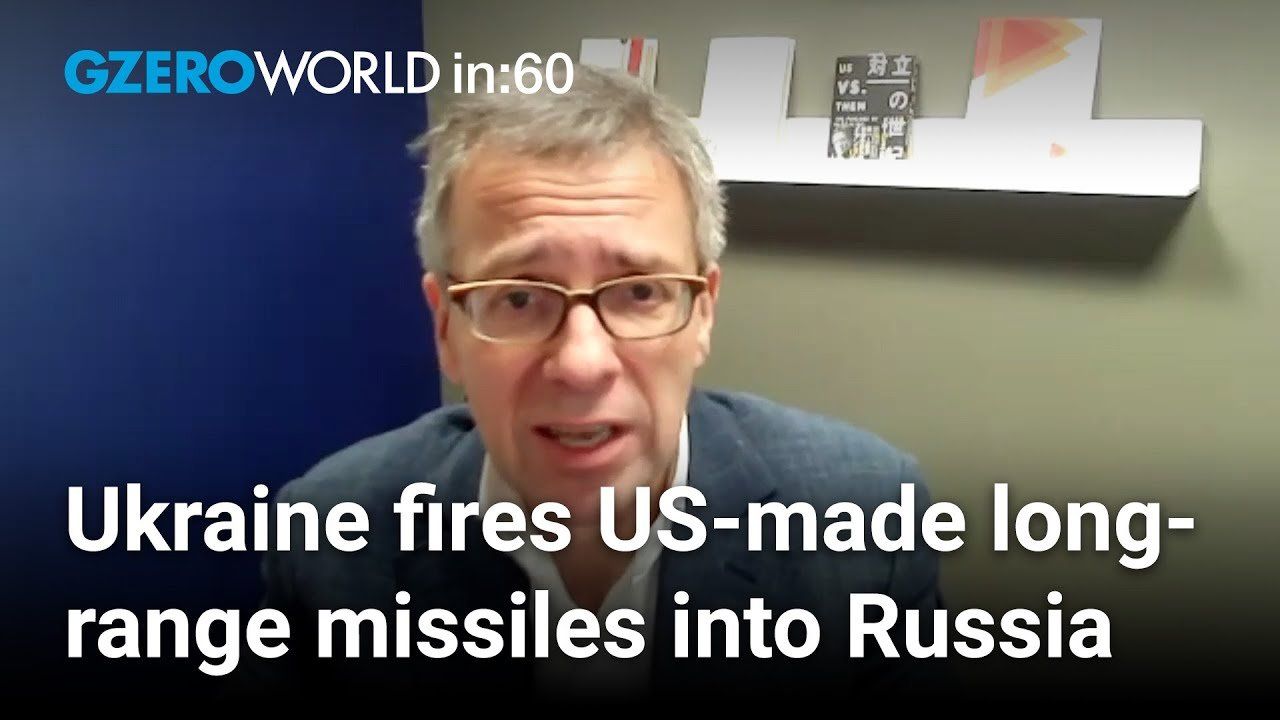
Ian Bremmer shares his insights on global politics this week on World In :60.
Ukraine has launched US-made long-range missiles into Russia for the first time. Will this change the course of the war?
I don't think so. First of all, the reason the Americans were dragging their feet for so long is because they didn't believe it would have any strategic impact in the war to give that permissioning to the Ukrainians and they were worried that it might lead to Russian escalation. That escalation is less likely given that Trump has been elected and he's going to be in power in just a couple of months, so the Russians basically have to deal with it, and they'll probably end up hitting more Ukrainian sites in the next couple of months. But I don't think it's really going to help the Ukrainians. I don't think it's going to hurt the Russians that much. What I do think is that the Russians are more likely to give better weapons, more capable weapons, to the Houthis, for example. So, if the Americans are going to arm proxies better, then the Russians will arm proxies better, and that could lead to bigger problems in the Gulf.
How likely will Trump be able to carry out mass deportations when he's in office?
I think he will be capable. He certainly was elected in part on that intention, on that promise. This is something that Biden really did not pay attention to until way too late and he lost a lot of votes in blue cities where people felt like there were just far too many illegal immigrants and the costs were great, and the security concerns were real. And so, the fact that he says he's going to use the military, that's potentially a Supreme Court question, but especially when you talk about people that have committed crimes in the United States, why they should still be in the US is a very serious question. And I wouldn't be surprised at all if 300,000, 500,000 deported in the first year. In other words, a hell of a lot higher than you've seen under Biden. There will be an inflation cost there, but it's one that I don't think Trump is going to take a big hit for.
Will there be political fallout from Hong Kong's decision to jail pro-democracy activists?
Not really, because China has changed the national security law. They've completely integrated Hong Kong into the Chinese political system and the pro-democracy activists don't have anyone that's willing to support them, not the UK, not the United States. I mean, they're human rights organizations, and you'll see members of Congress on the Democrat and Republican side that'll complain about it, but they won't do anything. So on balance, I don't think it matters, and that means, or I should say, it doesn't matter for China, which means very little blowback.
- No, the US didn’t “provoke” the war in Ukraine ›
- Russia cares more about Ukraine than the US does ›
- US compared to Russia after tanking UN resolution on Gaza ›
- The future of war: James Stavridis on China, Russia, and the biggest security threats to the US ›
- Can the US stay ahead of Russia & China in the space race? ›